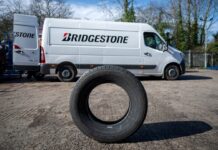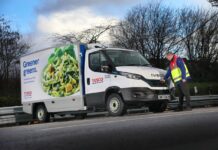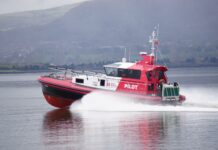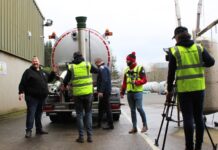With ambitious UK and EU targets for greenhouse gas emissions reductions, transport strategists, including Department for Transport’s (DfT) leaders, have made decarbonising the sector a priority.
Here, Beverley Wise, sales director for Webfleet Solutions, considers the impact improved fleet operations, maintenance and driving standards can have on tackling transport’s environmental challenges.
Transport remains one of the biggest sources of carbon emissions, accounting for around one third of UK output according to government figures. With an end to the UK sale of new petrol and diesel cars and vans just nine years away, electrification of mass market vehicles is gathering pace. HGVs, however, present a unique set of challenges.

Electric HGVs are now starting to come to market, but range limitations remain a significant concern, while the heavy battery requirements, combined with the current legal restrictions governing how much weight HGVs can carry, risk compromising payloads.
As things stand, battery-powered HGVs currently appear more suited to shorter, urban and regional journeys. Hydrogen fuel cells and biofuels, meanwhile, may ultimately fill the gap for long-haul transport.
As hauliers explore their sustainable vehicle options, systems, products and processes to reduce fuel consumption among existing fleets remains vital to decarbonisation.
Tyre innovations roll on
As efforts continue to be made to reduce the weight and aerodynamic drag of cabs and trailers, tyres are being engineered with ever greater precision to maximise fuel efficiency and minimise rolling resistance.Their maintenance and repair is also become increasingly pre-emptive.
Bridgestone’s NanoPro-Tech compound, for instance, has been proven to lower the internal friction between the different tyre compound elements. This in turn reduces top compound energy loss. Deployed in Ecopia H002 tyres, alongside design details such as slim beads and buttresses, it can help cut annual CO2 emissions for an average long haul fleet by 546 tonnes.
Data route to greener journeys
The amount of data available to transport operators to monitor and improve operations and environmental standards is now greater than ever.
But with transport and logistics one of the most heavily legislated sectors – and consequently one of the most administratively intensive – resource demands call for technologies that can streamline data collection, analysis and reporting.
Advanced telematics platforms can play a pivotal role here, helping operators decarbonise with minimal business disruption by enabling more efficient fleet and route planning. Furthermore, they can allow trends to be identified and the root causes of fuel wastage to be tackled.
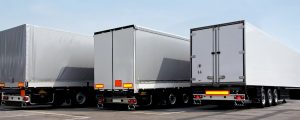 Smart navigation, incorporating live traffic information, will of course help drivers avoid congestion – slashing their journey times, and in the process, their carbon footprint. But intelligent routing and scheduling solutions also allow transport managers to improve the visibility of their daily workflow, so that jobs can be dynamically scheduled and adapted to minimise wasted mileage and time spent on the road.
Smart navigation, incorporating live traffic information, will of course help drivers avoid congestion – slashing their journey times, and in the process, their carbon footprint. But intelligent routing and scheduling solutions also allow transport managers to improve the visibility of their daily workflow, so that jobs can be dynamically scheduled and adapted to minimise wasted mileage and time spent on the road.
Management reporting data is also available on a range of driving behaviours, including harsh steering, braking, speeding, fuel consumption, and vehicle idling. Profiles can be created for an entire vehicle fleet or for individual drivers, based on their performance in such key areas of efficiency.
Platforms such as WEBFLEET promote a culture of collaboration by empowering drivers to adjust their driving styles in real time. Drivers can receive alerts via their sat nav devices to inform them where and when they can improve.
Devices can even provide predictive advice to unlock even greater fuel and carbon emissions savings, with drivers told when to take their foot off the accelerator on the approach to roundabouts or junctions, allowing them to drive in a more sustainable manner.
The benefits are clear. Using WEBFLEET Scottish haulier Ian Craig Haulage increased mpg by 10 per cent while logistics specialists Corporate Solutions realised mpg improvements of 9.2 per cent.
Although it is industry research and innovation that will ultimately deliver on net zero transport targets, strong, environmentally-focused leadership from fleet operators who are prepared to work with employees to introduce best practice can help bring about impactful change today.




